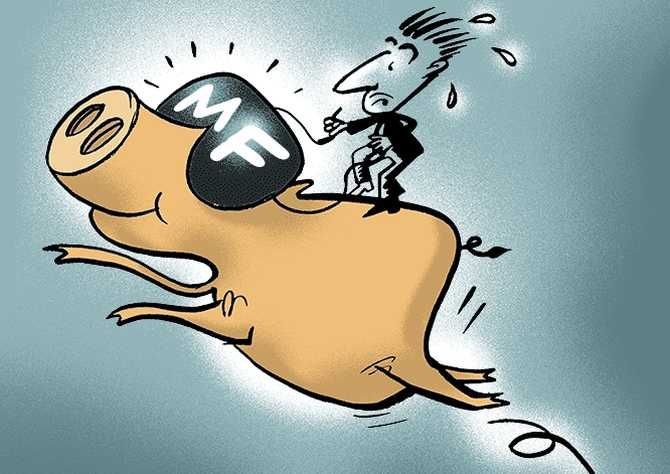Sebi may allow mutual funds to make use of covered calls as part of their equity strategy, reports Ashley Coutinho.
Illustration: Dominic Xavier/Rediff.com

Covered calls are an options strategy where an investor holds a long position in an asset and writes (sells) call options (having the right but no obligation to buy) on that same asset to generate an income stream.
This is often employed when an investor has a short-term neutral view on the asset and for this reason holds the asset long and simultaneously has a short position via the option to generate income from the option premium.
A covered call is also known as a 'buy-write'.
Covered calls are a neutral strategy in which the investor only expects a minor increase or decrease in the underlying stock price for the life of the written call option, according to Investopedia.
Bullish investors are better off not writing the option and just holding the stock.
The option caps the profit on the stock, which could reduce the overall profit of the trade if the stock price spikes.
On the other hand, bearish investors may be better off simply selling the stock since the premium received for writing a call option will do little to offset the loss on the stock if the stock plummets.
The strategy allows mutual funds to prop up their returns, albeit marginally, according to experts.
At present, MFs are allowed to use derivatives only to protect against losses or hedge their cash positions.
The extent of exposure an MF takes for hedging purposes cannot exceed the equity exposure that is being hedged.
For instance, equity savings schemes allow part-hedging of equity positions and leave the rest unhedged, while also investing a certain portion in debt instruments.
Until now, Sebi has adopted a cautious approach towards allowing MFs to invest in derivatives since the asset class is considered highly risky compared to equities or debt.
The improved liquidity and stable settlement systems, however, have prompted the market regulator to think about providing more leeway to MFs in the derivatives space.
MFs, non-banking finance companies and insurance firms are significant players in derivatives in developed markets. However, the Indian derivatives market boasts significant participation from high net worth and retail investors.










